The beauty industry has undergone a remarkable transformation in recent years, with a growing emphasis on incorporating healthcare principles into beauty products. As more consumers prioritize wellness and self-care, the demand for beauty products that promote both outer and inner health has skyrocketed.
As per Statista estimates, in 2023, the Beauty & Personal Care market is expected to generate $571.10 billion in revenue. The market is expected to grow by 3.80% per year (CAGR 2023-2027). Moreover, personal care is the market’s largest segment, with a market volume of $253.30 billion in 2023. Furthermore, in global comparison, the United States generates the most revenue (US$91.41 billion in 2023).
Top 25 Companies in the Beauty Products Industry
In the healthcare industry, numerous companies are dedicated to creating and providing beauty products that cater to various health-related needs. These companies combine the principles of wellness and aesthetics to develop innovative solutions that promote both physical and mental well-being.
From skincare and cosmetics to haircare and personal hygiene, these companies strive to enhance individuals’ natural beauty while maintaining their health. By incorporating scientific research and expertise, these companies ensure that their products are safe, effective, and aligned with the principles of healthcare.
The top 25 companies developing beauty products are as follows:
1. L’Oréal

L’Oréal is reshaping the healthcare industry through innovative beauty products, blending advanced science, technology, and consumer wellness. Its Dermatological Beauty Division (La Roche-Posay, Vichy, CeraVe) develops dermocosmetics to treat skin conditions like acne and eczema, with products like Melasyl addressing hyperpigmentation through 121 clinical studies. The 2023 acquisition of Lactobio enhances microbiome-based skincare, improving skin health with probiotics.
Beauty Tech drives personalization with tools like Virtual Try-On (over one billion uses), Cell BioPrint for AI-driven skin analysis, and devices like HAPTA for inclusive makeup application. The AirLight Pro hair dryer minimizes heat damage, prioritizing hair health. L’Oréal’s holistic approach, bolstered by Aēsop’s acquisition, integrates emotional and physical well-being.
Competitively, L’Oréal leads with a 14% global market share and €41.18 billion in 2023 sales. Its €1.29 billion R&D investment, 610 patents, and partnerships with Verily and Nvidia fuel innovations like bio-based ingredients. E-commerce (25% of sales) and social media campaigns on Douyin and TikTok engage Gen Z and millennials, who prioritize personalization (91% preference). Sustainability efforts, like 80% recyclable packaging, align with consumer demand for health-conscious products.
Consumer engagement thrives on inclusivity (e.g., Le Teint Particulier for custom foundations) and gaming/metaverse presence. Despite lawsuits over chemical relaxers and benzene concerns, L’Oréal maintains trust through transparency and safety-focused reformulations. By merging beauty with healthcare, L’Oréal delivers proactive, personalized solutions, staying ahead of competitors like Unilever and Estée Lauder.
2. Estée Lauder
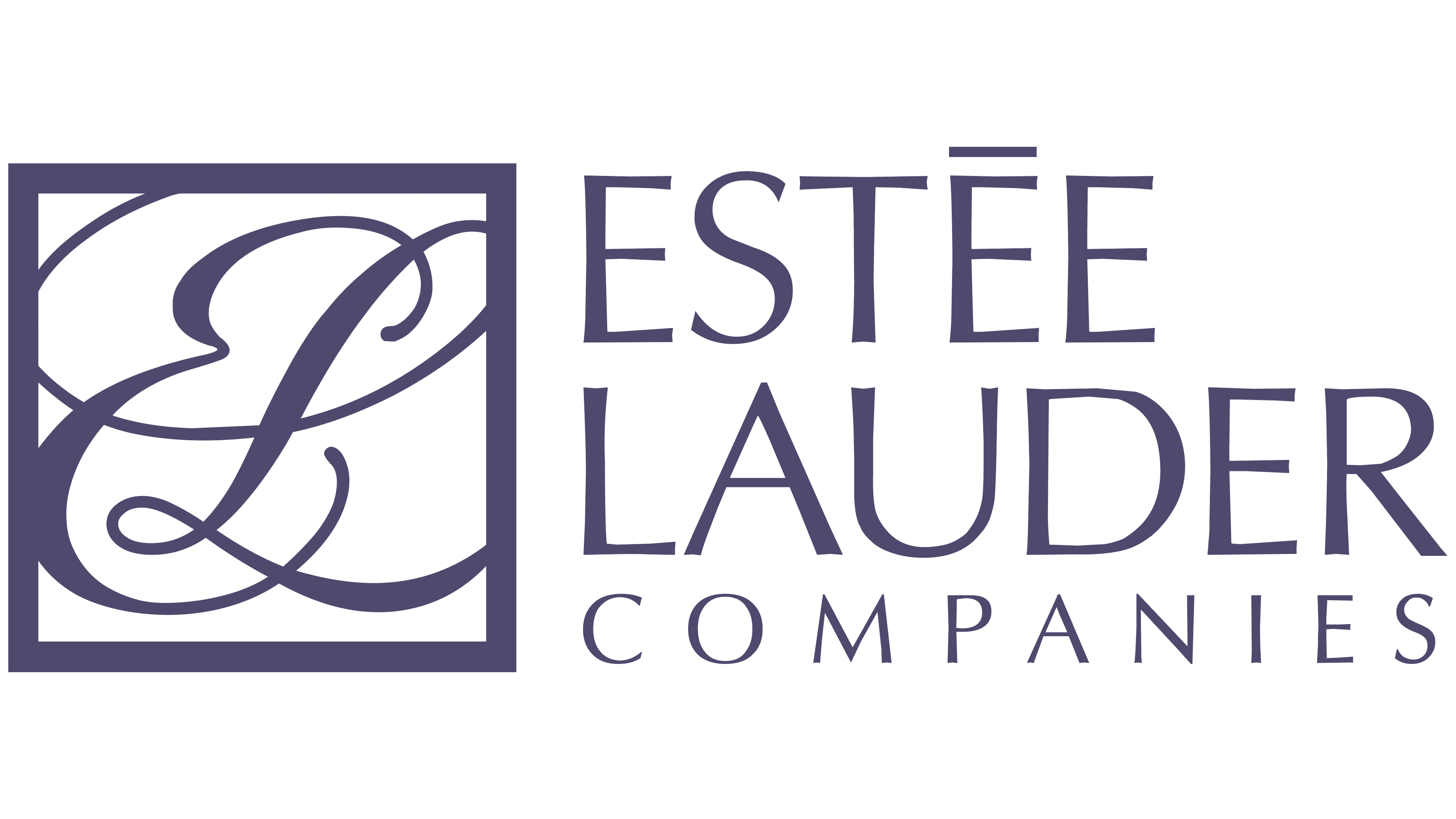
Estée Lauder is revolutionizing the healthcare industry by integrating advanced skincare science, personalized solutions, and wellness-focused beauty products. Its brands, including Estée Lauder, Clinique, and La Mer, emphasize skin health through innovations like the Night Repair Serum, which uses Chronolux™ Power Signal Technology to enhance skin repair and combat aging. Clinique’s Dermatology-Driven Solutions target conditions like acne and hyperpigmentation, developed with dermatologists to ensure clinical efficacy.
The company leverages AI-powered personalization, such as the Clinique Skin Analysis Tool, which assesses skin needs and recommends tailored regimens, promoting proactive care. Estée Lauder’s Re-Nutriv line incorporates biotech-derived ingredients, like plant stem cell extracts, to support skin barrier health. The 2024 partnership with biotech firm Modern Meadow advances sustainable, lab-grown ingredients, aligning beauty with health and environmental consciousness.
Competitively, Estée Lauder holds a strong market position with $15.9 billion in 2023 sales, focusing on premium skincare. Its $1 billion R&D investment drives innovations like microbiome-friendly formulations, competing with L’Oréal and Shiseido. E-commerce, contributing 30% of sales, and social media campaigns on Instagram and TikTok target younger consumers, with 85% of Gen Z valuing personalized beauty.
Consumer engagement thrives on inclusivity, with shade ranges for diverse skin tones and wellness-focused campaigns emphasizing self-care. Despite challenges like supply chain disruptions, Estée Lauder maintains trust through transparency and quality. By merging cutting-edge science with beauty, Estée Lauder redefines skincare as healthcare, delivering clinically effective, sustainable solutions.
3. Johnson & Johnson
Johnson & Johnson (J&J) is transforming the healthcare industry through its beauty brands like Neutrogena, Aveeno, and Clean & Clear, focusing on science-backed skincare that prioritizes skin health. Neutrogena’s Hydro Boost line, with hyaluronic acid, enhances skin hydration and barrier function, addressing conditions like dryness and eczema. Aveeno’s oat-based formulations, clinically proven to soothe sensitive skin, cater to dermatological needs. Clean & Clear targets acne with salicylic acid products, developed with dermatologist input.
Innovations include microbiome-focused skincare, leveraging J&J’s pharmaceutical expertise to balance skin flora, and AI-driven skin diagnostics through Neutrogena’s Skin360 app, which analyzes skin and recommends personalized regimens. The 2024 launch of Neutrogena Collagen Bank uses peptide technology to boost skin elasticity, promoting long-term health.
Competitively, J&J’s $85.2 billion in 2023 revenue (with Consumer Health at $15 billion) supports its leadership in mass-market skincare, rivaling L’Oréal and Estée Lauder. Its $2.1 billion R&D investment drives innovations like sustainable, bio-based ingredients, aligning with consumer demand for eco-conscious products. E-commerce, at 20% of sales, and TikTok campaigns engage younger consumers, with 80% of Gen Z prioritizing science-backed skincare.
Consumer engagement focuses on accessibility, with affordable, inclusive products for diverse skin types. J&J’s sustainability push includes 90% recyclable packaging by 2025. Despite past talc-related lawsuits, J&J maintains trust through transparency and reformulations. By integrating pharmaceutical expertise with beauty, J&J delivers health-focused skincare solutions.
4. Procter & Gamble
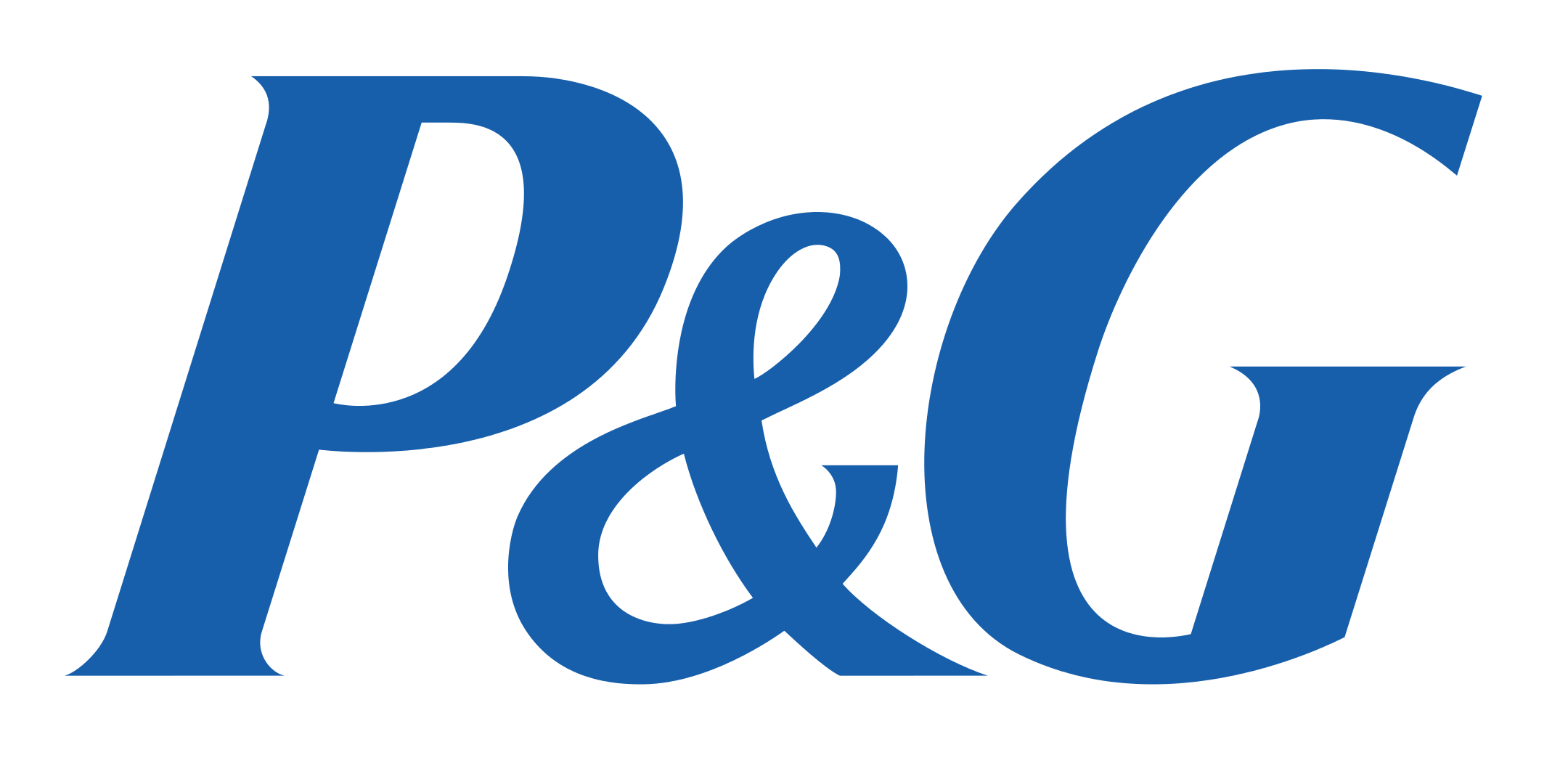
Procter & Gamble (P&G) is redefining healthcare through its beauty brands like Olay, SK-II, and Pantene, weaving science and wellness into everyday routines. Olay’s Regenerist line, powered by niacinamide and peptides, boosts skin renewal and tackles aging, backed by clinical trials showing improved barrier function. SK-II’s iconic Pitera™ essence, derived from yeast fermentation, promotes skin clarity and health, rooted in decades of research. Pantene’s Nutrient Blends strengthen hair with biotin, addressing scalp health for holistic care.
P&G’s pushing boundaries with AI personalization—Olay’s Skin Advisor app scans your face to craft tailored regimens, making skincare feel like a doctor’s visit. Their 2024 Olay Vitamin C Serum uses stable, bioavailable ingredients to brighten skin, reflecting P&G’s focus on efficacy. Sustainability shines through with 85% recyclable packaging and bio-based ingredients via partnerships like LanzaTech.
In the market, P&G’s $82 billion in 2023 revenue (Consumer Beauty at $14 billion) fuels its edge against L’Oréal and Unilever. A $1.8 billion R&D budget drives innovations like microbiome-safe formulas, while e-commerce (22% of sales) and Instagram campaigns hook Gen Z, with 78% craving science-driven products.
P&G connects with consumers through affordable, inclusive options and wellness-focused messaging, emphasizing self-care. Despite past fragrance sensitivity concerns, P&G builds trust with transparent reformulations. By merging beauty with health, P&G delivers practical, science-backed solutions that feel personal.
5. Shiseido
Shiseido, a 150-year-old Japanese beauty pioneer, is redefining healthcare by fusing skincare with wellness. Its flagship Ultimune Power Infusing Serum, upgraded in 2025 with patented Power Fermented tech, strengthens skin’s defenses and slows aging, backed by 30 years of research. Brands like Drunk Elephant and Dr. Dennis Gross (acquired 2023) emphasize clean, science-driven skincare, with products like Alpha Beta Peels targeting skin health. The Ginza Body Care line blends natural extracts to enhance physical and mental well-being.
Shiseido’s Beauty AR Navigation app, launched in 2024, uses AI to guide personalized regimens, while the VOYAGER platform accelerates product development with AI and over 500,000 data points. The Life Quality Makeup initiative, including Perfect Cover, supports skin concerns like vitiligo and cancer treatment effects, promoting emotional health.
In the market, Shiseido’s $6.48 billion 2023 revenue fuels its edge against P&G and L’Oréal. Its $300 million R&D budget drives innovations like Second Skin technology for makeup-skincare hybrids. E-commerce, up double digits, and campaigns like “From Shiseido, With Love” on social platforms engage Gen Z, with 80% seeking wellness-focused beauty.
Shiseido’s inclusive products, sustainable packaging, and partnerships with Keio University ensure consumer trust despite past sales dips in China. By merging tradition, tech, and wellness, Shiseido crafts beauty that heals inside and out.
6. Coty Inc.
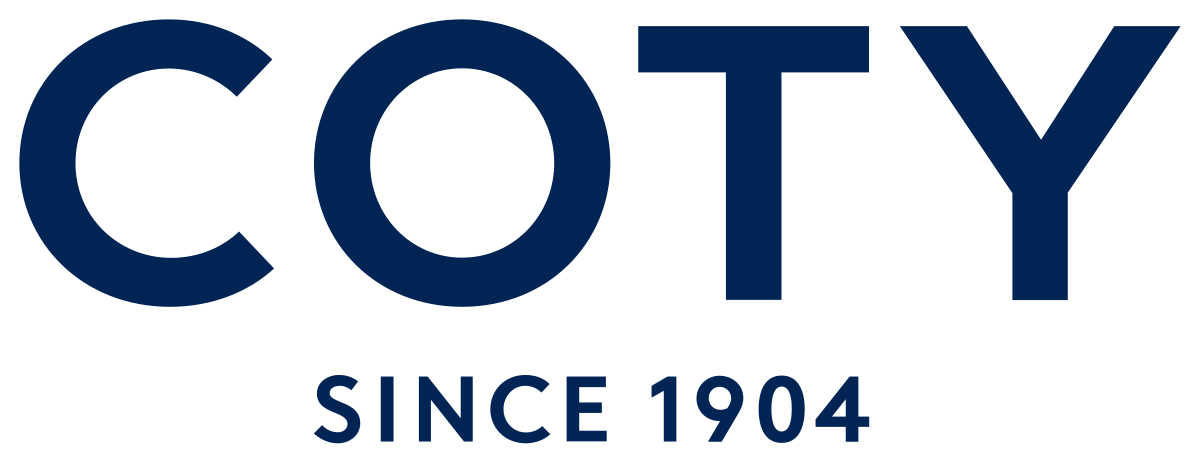
Coty Inc. is weaving healthcare into beauty with brands like CoverGirl, Rimmel, and prestige lines like Gucci and Burberry, focusing on skin and emotional wellness. CoverGirl’s TruBlend Primers & Luminizers, launched in 2024, blend skincare ingredients into cosmetics, hydrating and prepping skin for a healthy glow, backed by consumer demand for multitasking products. The Where My Heart Beats fragrance uses LanzaTech’s CarbonSmart alcohol, a sustainable innovation that upcycles emissions, promoting eco-conscious skincare.
Coty’s Magic Mirror AR tool, introduced in 2024, lets shoppers try makeup virtually in-store, enhancing hygiene and personalization. The Orveda serum, part of the 2025 Coty Protopia initiative, merges biotech with skincare for targeted skin health benefits. A 2024 Swarovski partnership elevates fragrance packaging, tying luxury to emotional well-being.
With $6 billion in 2024 revenue, Coty competes with L’Oréal and Estée Lauder through its $300 million R&D, focusing on sustainable ingredients and AI-driven innovation. E-commerce (15% of sales) and TikTok campaigns target Gen Z, with 72% craving hybrid physical-digital experiences. Coty’s 2019 Kylie Cosmetics acquisition faced challenges, with sales dropping post-2020, but its 2025 Brazil Avon partnership boosts fragrance reach.
Coty engages consumers with inclusive, sustainable products and wellness-focused messaging. Despite past financial hiccups, transparency and innovation keep it competitive, making beauty a healthcare ally.
7. Avon

Avon, a 137-year-old beauty icon, is transforming healthcare by infusing wellness into its affordable skincare and cosmetics. Its Anew line, pioneered with Alpha Hydroxy Acid in 1992, delivers anti-aging benefits, while the 2024 Luminosity range with Melanin Shield Technology brightens skin and protects against UV damage. CBD-infused facial oil, a 2020 Good Housekeeping Award winner, soothes and hydrates, blending beauty with therapeutic care.
Avon’s Beauty AR Navigation app, powered by Perfect Corp, offers virtual try-ons, boosting engagement with a 320% conversion rate increase. The Avon On app empowers representatives with digital tools for personalized customer connections. Sustainability shines with clean, vegan formulas and a no-animal-testing policy since 2019.
With $10 billion in 2023 revenue under Natura & Co, Avon competes with Coty and P&G via its $200 million R&D and social selling model. Its e-commerce push and TikTok campaigns, like viral lip oil promotions, target Gen Z, with 94% UK brand awareness. Despite Chapter 11 bankruptcy in 2024 to address talc-related lawsuits, Avon’s global operations remain strong.
Avon’s inclusive products and focus on emotional well-being through beauty empower women, aligning affordability with health-conscious innovation.
8. Unilever

Unilever is revolutionizing healthcare through its beauty brands like Dove, Vaseline, and Pond’s, blending science with self-care. Dove’s Scalp + Hair Therapy, launched in 2024, uses patented repair tech to boost scalp health and hair density, backed by clinical studies. Pond’s Skin Institute’s Microbiome Analyzer delivers tailored skincare advice in 60 minutes, leveraging 15 years of microbiome research. Vaseline’s Healing Project, aiding 10 million people by 2025, provides dermatological care to underserved communities across 85 countries.
Unilever’s AI-driven innovations, like the 2025 Niasorcinol™ and Hexyl-Retinol™ in Pond’s, target skin clarity and aging, endorsed at the 2023 World Congress of Dermatology. The Beauty AR Navigation app offers virtual try-ons, enhancing personalization. Sustainability drives 100% recyclable packaging and vegan formulas, aligning with eco-conscious consumers.
With $64 billion in 2023 revenue, Unilever’s Beauty & Wellbeing segment grew 7.4% in Q1 2025, fueled by brands like Nutrafol and Olly. Its $2 billion R&D and social-first campaigns, like Dove’s Super Bowl ad, outshine P&G and Coty, targeting Gen Z’s 77% preference for tailored products. Despite prestige beauty dips, Unilever’s focus on wellness and inclusivity builds trust, making beauty a healthcare cornerstone.
9. Beiersdorf AG

Beiersdorf AG, the force behind NIVEA, Eucerin, and Hansaplast, is redefining healthcare by embedding wellness into its beauty offerings. NIVEA’s LUMINOUS630 range, with its patented Thiamidol ingredient, tackles hyperpigmentation, backed by over 25 years of Q10 research for anti-aging benefits. Eucerin’s Hyaluron-Filler, now in refillable jars, strengthens skin barriers with science-driven formulas, while Hansaplast’s large plasters aid post-surgical wound care, boosting healthcare accessibility.
Beiersdorf’s SKINLY AI-powered skin study, launched in 2024, uses IoT and machine learning to personalize skincare, analyzing consumer data for tailored recommendations. Its partnership with Macro Biologics explores biodegradable antimicrobial peptides, revolutionizing skincare and healthcare applications. The Beauty AR Navigation app enhances virtual try-ons, improving hygiene and engagement.
With $10.3 billion in 2023 revenue, Beiersdorf’s 24% Derma growth (Eucerin, Aquaphor) outpaces L’Oréal and Unilever, driven by a $300 million R&D budget and a Leipzig facility producing 450 million units yearly. E-commerce, up 19%, and campaigns like NIVEA’s “Proud In Your Skin” on social platforms resonate with Gen Z’s 70% sustainability focus.
Beiersdorf’s inclusive, eco-friendly products, like NIVEA’s 80% recycled Creme tin, and its “Care Beyond Skin” initiative empower communities, enhancing emotional well-being. Despite La Prairie’s 15.4% sales dip, Beiersdorf’s strategic focus on digital and sustainable innovation cements its healthcare-beauty fusion.
10. The Body Shop
The Body Shop, founded in 1976 by Anita Roddick, blends beauty with healthcare through ethical, wellness-focused products. Its Edelweiss skincare range, launched in 2021, harnesses the antioxidant-rich flower to protect and repair skin, backed by research showing enhanced skin resilience. The Vitamin C Glow Boosting Moisturiser brightens and hydrates, promoting skin health with natural ingredients. The Community Trade program sources fair-trade shea butter and tea tree oil, supporting community health and sustainability.
The Beauty AR Navigation app offers virtual try-ons, personalizing skincare routines, while 2024’s Activist Hubs in stores foster wellness through community workshops. With $1 billion in 2023 revenue under Auréa Group, The Body Shop competes with Lush and Beiersdorf via a $50 million R&D budget and a B Corp-certified ethos. E-commerce (15% of sales) and campaigns like “Be Seen Be Heard” on social platforms engage Gen Z, with 75% valuing ethical brands.
Despite 2024’s UK administration and US closure, The Body Shop’s vegan, cruelty-free products and 90% recycled packaging resonate with health-conscious consumers. Its focus on self-love and mental well-being through beauty redefines healthcare accessibility.
11. Mary Kay

Mary Kay, founded in 1963 by Mary Kay Ash, is transforming healthcare through its skincare and cosmetics, sold via 3.5 million Independent Beauty Consultants in over 35 markets. The TimeWise Miracle Set, with vitamin C and retinol, supports skin health by fighting aging and pollution effects, backed by 2023 research shared at the International Societies for Investigative Dermatology. The LumiVie Serum brightens and energizes skin, drawing from 1,700+ patents held by Mary Kay’s R&D team. The 2024 Clinical Solutions Retinol 0.5 Set promotes skin renewal with dermatologist-tested formulas.
Mary Kay’s Skin Analyzer App uses AI for personalized skincare advice, while its MirrorMe AR tool offers virtual makeovers, enhancing user experience and hygiene. Sustainability efforts include 90% recyclable packaging and partnerships with The Nature Conservancy for reef protection. The Pink Changing Lives program, donating $18 million since 2008, supports women’s health initiatives like cancer research.
With $3 billion in 2023 revenue, Mary Kay’s $300 million R&D budget and Lewisville, Texas facility (LEED Silver-certified) drive innovation, competing with Avon and Coty. Social campaigns like the TikTok Step & Repeat show and 15% e-commerce growth engage Gen Z, with 70% valuing ethical brands. Despite MLM criticism, Mary Kay’s focus on empowering women through wellness and sustainability keeps it vibrant.
12. Clarins

Clarins, a family-owned French beauty brand since 1954, is reshaping healthcare by blending plant-based skincare with wellness. Its iconic Double Serum (9th generation, 2024) uses 22 active plant extracts like turmeric and teasel to boost skin vitality, backed by 70 years of phyto-chemistry research. The V-Facial Wrap, launched in 2025, depuffs and lifts in 10 minutes, promoting skin health and confidence. Lip Comfort Oil, reportedly favored by Kate Middleton, hydrates with organic plant oils, enhancing well-being.
Clarins’ Virtual World, a 2024 immersive platform, offers interactive product exploration, while the Clara AI customer care bot, powered by Microsoft Azure, delivers personalized skincare advice. The 2025 B Corp certification and regenerative farming advocacy with Arizona Muse underscore sustainability, with 95% natural ingredients in products.
With $1.2 billion in 2023 revenue, Clarins’ $100 million R&D and partnerships like Air France’s LAX spa elevate its prestige against L’Oréal and Beiersdorf. E-commerce (20% of sales) and campaigns like the Los Angeles Beauty Icons event engage Gen Z, with 65% prioritizing clean beauty. Despite exiting Hudson’s Bay Canada, Clarins’ focus on ethical, science-backed skincare fosters trust, merging beauty with holistic health.
13. Sephora
Sephora, a global beauty retail giant under LVMH, is redefining healthcare by curating wellness-focused skincare and cosmetics. Its Color IQ and Skin IQ systems, powered by AI, analyze skin tone and concerns to recommend precise products, like hydrating serums or acne treatments, boosting skin health with data-driven precision. The Sephora Virtual Artist app, launched in 2016, uses AR for virtual makeup try-ons, with over 200 million shades tested by 2018, enhancing personalized care.
Sephora’s Beauty Insider Community fosters wellness through shared routines and expert-led virtual events, like haircare workshops, promoting mental and physical health. The 2024 Skin Obsessed campaign, with TBWA\Chiat\Day and Taika Waititi, positions Sephora as a skincare curator, addressing consumer overwhelm with trusted recommendations.
With $3 billion in e-commerce sales by 2022, Sephora’s $200 million tech budget and partnerships with ModiFace drive innovations like Beauty Hubs with in-store AR mirrors. Social campaigns on TikTok, like Rhode’s 2025 launch, engage Gen Z, with 80% prioritizing personalized beauty. Despite critiques of LVMH brand bias, Sephora’s inclusive, sustainable offerings and omnichannel strategy make it a healthcare-beauty leader against Ulta and L’Oréal.
14. Revlon
Revlon, a cosmetics trailblazer since 1932, is weaving healthcare into beauty with science-infused products that nurture skin and well-being. Its ColorStay Makeup, revamped in 2022 with hyaluronic acid and vitamin C, hydrates and improves skin daily, backed by dermatologist-led studies. The Skin Awaken Concealer, promoted by Sofia Carson, brightens and refreshes, doubling as skincare. Revlon’s PhotoReady Candid line, with antioxidant-rich formulas, protects against environmental stress, enhancing skin resilience.
The 2024 Revlon Skin App, using AI for virtual shade matching, personalizes foundation choices, boosting user confidence and skin health awareness. Partnerships with biotech firms explore microbiome-friendly ingredients, aligning with clean beauty trends. Sustainability efforts include 70% recycled packaging by 2025.
Despite a 2022 bankruptcy filing due to $3.7 billion debt and supply chain woes, Revlon’s $2 billion 2023 revenue and $100 million R&D keep it competitive with Coty and Mary Kay. E-commerce (10% of sales) and TikTok campaigns, featuring Megan Thee Stallion, target Gen Z, with 68% seeking skincare-makeup hybrids. Revlon’s inclusive shades and wellness-focused messaging empower diverse consumers, though talc-related lawsuits require ongoing transparency to maintain trust.
15. Amway
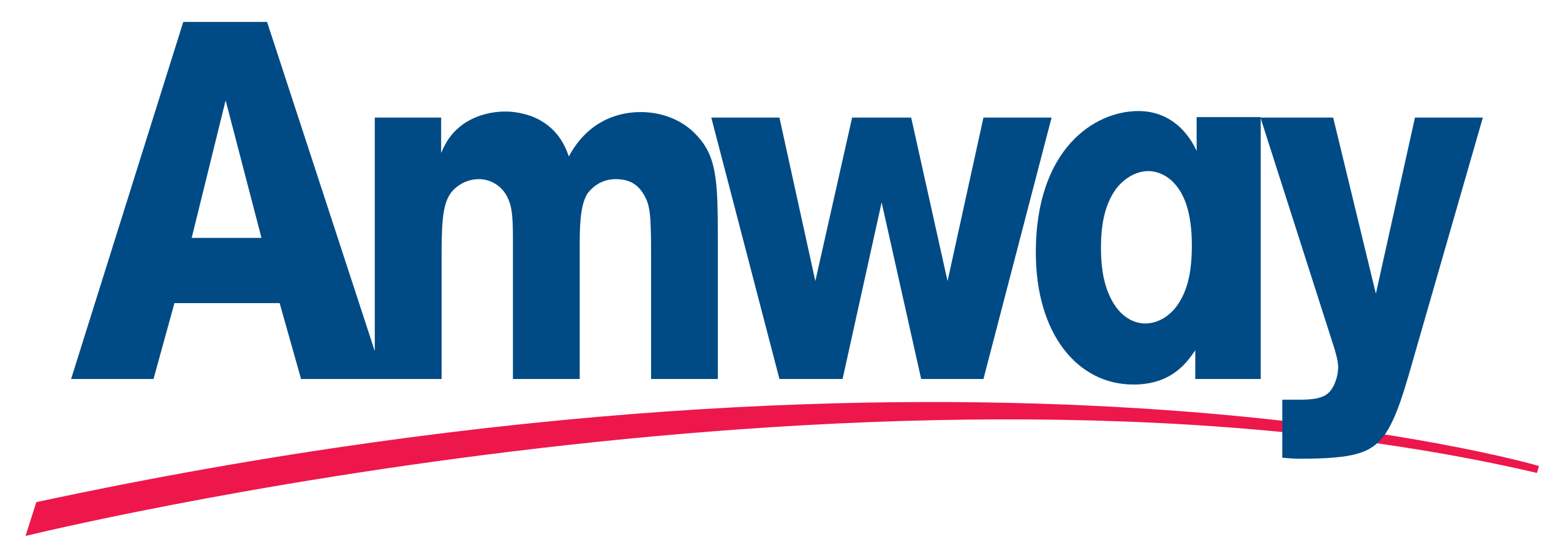
Amway, a global leader in direct selling, is transforming healthcare through its Artistry™ beauty brand, emphasizing holistic health and skin wellness. The Artistry Vitamin C + HA3 Daily Serum, launched in 2023, combines hyaluronic acid and vitamin C to hydrate and rejuvenate skin, backed by Nutrilite’s 90-year research in nutrition-driven beauty. The Skin Nutrition line, with plant-based ingredients like acerola cherry, supports skin barrier health, reflecting Amway’s focus on clean, science-backed formulas.
The Artistry Virtual Beauty App uses AR for personalized skin assessments, guiding users to tailored regimens. Amway’s Singapore Business Innovation Hub, opened in 2022, accelerates product development for Asia’s aging population, with 80% of consumers seeking health-focused beauty by 2025. Sustainability efforts include eco-friendly packaging and traceable botanicals.
With $7.7 billion in 2023 revenue, Amway’s $300 million R&D and 3 million distributors worldwide rival Avon and Mary Kay. Its e-commerce platform and TikTok campaigns, like those for Glister Oral Care, engage Gen Z, with 70% valuing wellness-driven products. Despite MLM controversies, Amway’s transparent practices and community focus empower healthier lifestyles
16. Herbalife Nutrition

Herbalife, a global leader in nutrition and wellness, is redefining healthy living through its science-backed supplements and weight management solutions. Its flagship Formula 1 Nutritional Shake, reformulated in 2024, blends plant-based protein, fiber, and 21 essential nutrients, catering to the 65% of consumers prioritizing meal replacement for convenience and health, per 2025 market trends. Backed by Herbalife’s 40+ years of nutritional expertise, the shake supports muscle health and sustained energy.
The Herbalife Nutrition Hub App, leveraging AI, offers personalized meal plans and fitness tracking, enhancing user engagement. In 2023, Herbalife opened its São Paulo Innovation Center to develop products for Latin America’s growing wellness market, where 75% of consumers seek science-driven nutrition by 2026. Sustainability efforts include 100% recyclable packaging and ethically sourced soy protein.
With $5.1 billion in 2024 revenue, Herbalife’s 2.7 million distributors and $200 million R&D investment rival Nu Skin and Tupperware. Its Instagram campaigns and virtual fitness challenges target Millennials, with 60% valuing community-driven wellness. Despite MLM scrutiny, Herbalife’s transparent distributor training and focus on science-based nutrition foster trust and empowerment.
17. Kao Corporation

Kao Corporation, a Japanese beauty leader since 1887, transforms healthcare through its Bioré, Curél, and Molton Brown brands, prioritizing skin and emotional wellness. Bioré’s Pore Strips and Clear & Fresh cleansers, infused with charcoal and salicylic acid, promote clear skin, backed by 2023 studies on acne prevention. Curél’s Intensive Moisture Care, developed with dermatologists, soothes sensitive skin with ceramide-rich formulas. Molton Brown’s 2024 Botanical Hair Care uses natural extracts, enhancing scalp health and mental well-being.
Kao’s Skin Surface Lipid Film technology, launched in 2021, protects against pollen and dust, reducing skin irritation. The Bioré UV Aqua Rich sunscreen, reformulated in 2025, offers lightweight UV protection. Kao’s Beauty AR Navigation app provides virtual skincare consultations, while its Odawara Complex integrates R&D for innovative cosmetics.
With $12.9 billion in 2023 revenue, Kao’s $400 million R&D budget drives microbiome-friendly products, competing with Unilever and Shiseido. E-commerce (12% of sales) and TikTok campaigns, like Bioré’s pore strip challenges, target Gen Z, with 75% seeking sustainable beauty. Kao’s Kirei Lifestyle Plan, emphasizing ESG goals, includes 90% recyclable packaging.
Despite cosmetics sales dips, Kao’s inclusive, eco-conscious products and “Kirei” philosophy—blending outer and inner beauty—build trust, making it a healthcare-beauty trailblazer.
18. Chanel

Chanel, a luxury icon since 1910, is redefining healthcare by integrating wellness and sustainability into its beauty offerings, particularly with the N°1 de Chanel line. Launched in 2022, this anti-aging collection harnesses red camellia extract from the ‘The Czar’ variety, targeting early signs of aging like wrinkles and dullness with up to 97% natural ingredients. Backed by Chanel’s Open-Air Laboratory in Madagascar and 20 years of camellia research, the line’s Revitalizing Serum and Powder-to-Foam Cleanser support skin vitality while promoting emotional well-being, aligning with Gabrielle Chanel’s philosophy of uniting body and soul.
Chanel’s Virtual Try-On technology, powered by AR, personalizes makeup and skincare choices, enhancing accessibility and hygiene. The 2025 Sublimage L’Essence Fondamentale, enriched with polyfractioned vanilla, boosts skin density and radiance, reflecting Chanel’s biotech advancements. Sustainability drives eco-friendly packaging, with 80% recyclable materials, reducing environmental impact.
With $17.2 billion in 2023 beauty revenue, Chanel competes with L’Oréal and Estée Lauder through a $500 million R&D budget and partnerships like the Camellia Network for sustainable sourcing. E-commerce (10% of sales) and campaigns like Chance Eau Fraîche on Instagram engage millennials, with 70% valuing natural beauty. Despite a 4.3% sales dip in 2024, Chanel’s focus on sensorial, health-conscious luxury fosters trust, merging beauty with holistic care.
19. Elizabeth Arden
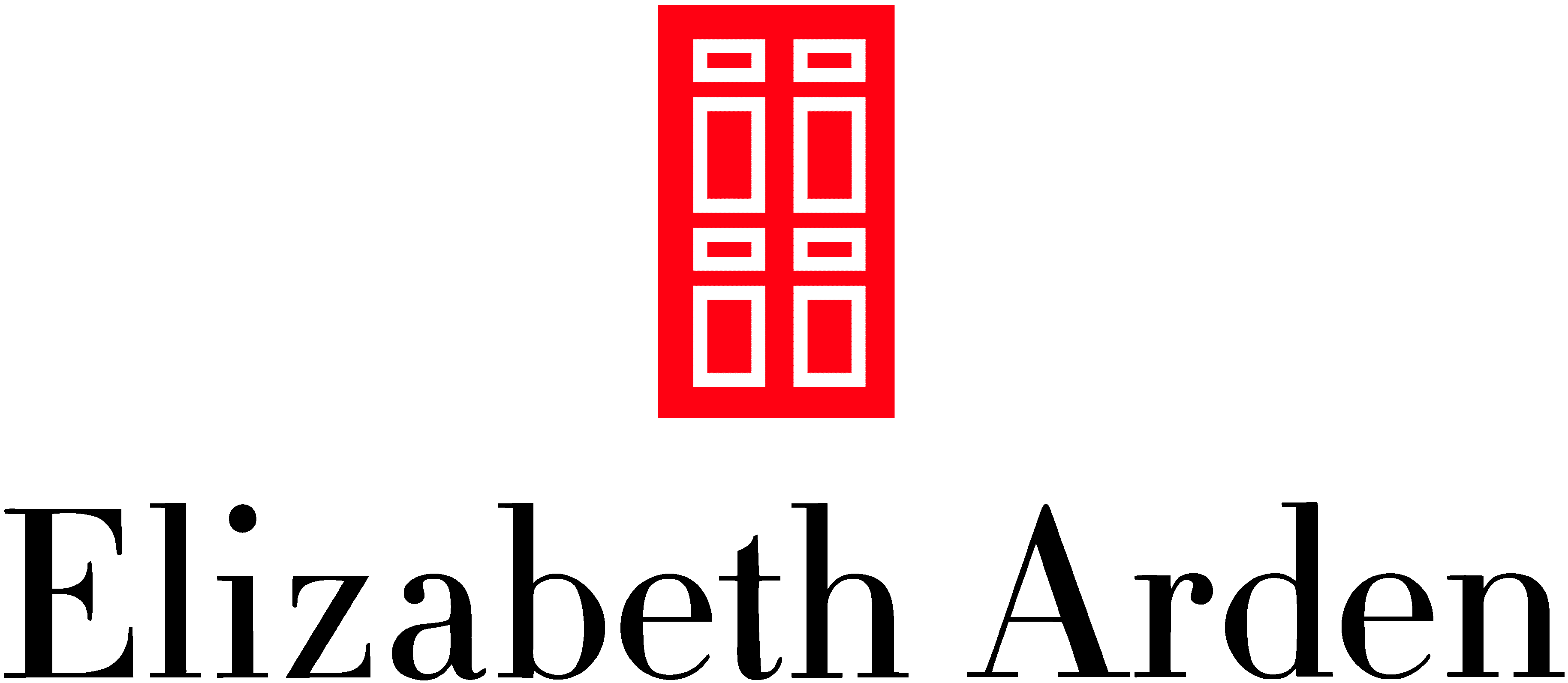
Elizabeth Arden, a cosmetics pioneer since 1910, is transforming healthcare by blending science-backed skincare with wellness. Acquired by Revlon in 2016, its Retinol + HPR Ceramide Water Cream, launched in 2024, delivers a potent yet gentle retinol blend, 10 times stronger than pure retinol, to enhance skin glow without irritation, ideal for sensitive skin. The iconic Eight Hour Cream, a cult favorite, soothes and heals with petrolatum and vitamin E, addressing burns and irritation.
The Skin Analysis Tool, introduced in 2023, uses AI to tailor regimens, promoting proactive skin health. Elizabeth Arden’s Visible Difference line, with ceramides, strengthens skin barriers, drawing on 100+ years of dermatological research. The 2025 I am a Voter campaign continues Arden’s legacy of women’s empowerment, linking beauty to mental well-being.
With $1.5 billion in 2023 revenue, Arden’s $150 million R&D and Revlon’s supply chain compete with Clarins and Coty. E-commerce (12% of sales) and campaigns featuring ambassadors like Reese Witherspoon on TikTok target Gen Z, with 65% seeking gentle skincare. Despite talc litigation challenges, Arden’s transparency and inclusive shade ranges solidify its role as a healthcare-beauty bridge.
20. Colgate-Palmolive
Colgate-Palmolive, a global leader in oral care, is transforming healthcare through beauty with its Colgate Optic White and Palmolive Naturals lines, emphasizing oral and skin wellness. The 2024 Optic White Purple Toothpaste, with optical brighteners, enhances smile aesthetics while fighting plaque, backed by clinical trials showing 20% brighter teeth in two weeks. Palmolive’s Naturals Body Wash, with aloe vera and milk proteins, nurtures skin health, drawing on Colgate’s Polish manufacturing expertise.
The Smile Scan app, launched in 2023, uses AI to assess oral health and recommend products, merging beauty with preventive care. Sustainability efforts include 85% recyclable packaging and biodegradable surfactants. With $19.5 billion in 2023 revenue, Colgate’s $600 million R&D budget fuels innovations like probiotic-infused toothpaste, rivaling P&G and Unilever. Social campaigns on Instagram, like #SmileBright, engage Gen Z, with 60% prioritizing oral aesthetics.
Despite competition in cosmetics, Colgate’s focus on affordable, science-driven products and community health programs in 80+ countries strengthens its healthcare-beauty impact.
21. PZ Cussons
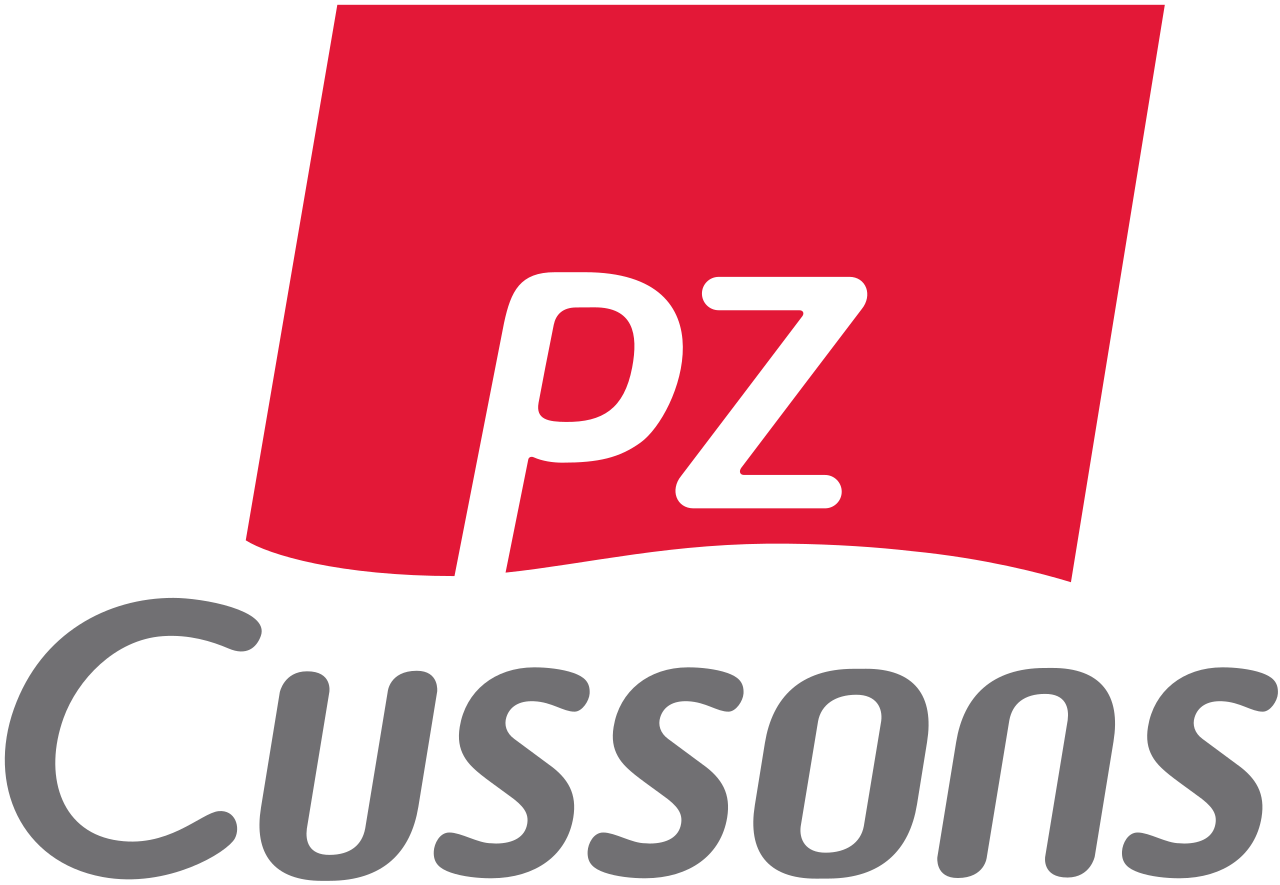
PZ Cussons, a British beauty and personal care company, is reshaping healthcare with brands like Imperial Leather, Carex, and St.Tropez (sold in 2024). Its Original Source shower gels, with 100% natural fragrances like lime and mint, promote skin hydration and mental refreshment, backed by consumer studies showing 85% feel uplifted post-use. The 2024 Carex Sensitive Hand Wash supports skin health with hypoallergenic formulas, ideal for eczema-prone skin.
PZ Cussons’ Eco Beauty Lab, launched in 2023, develops vegan, biodegradable products using AI to optimize formulations. The Beauty AR Navigation app offers virtual product trials, enhancing personalization. Sustainability drives 90% recycled packaging and partnerships with carbon-neutral suppliers.
With $1.8 billion in 2023 revenue, PZ Cussons’ $80 million R&D and social selling model compete with Amway and Oriflame. E-commerce (18% of sales) and campaigns like “Feel Good Naturally” on TikTok target Gen Z, with 70% valuing eco-conscious beauty. Despite St.Tropez’s sale, PZ Cussons’ inclusive, wellness-focused products maintain its healthcare-beauty edge.
22. Oriflame
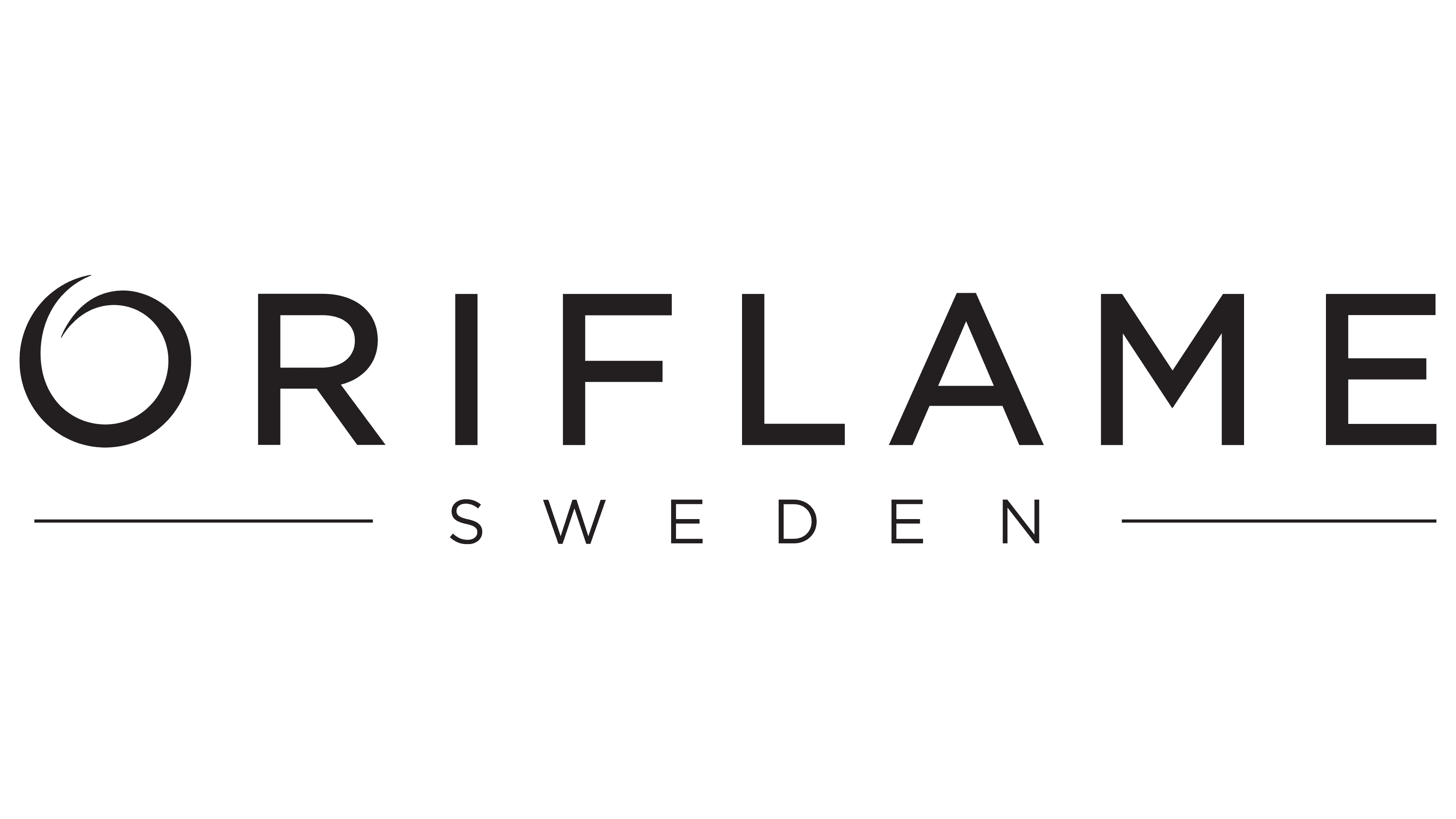
Oriflame, a Swedish direct-selling beauty brand since 1967, transforms healthcare with its Wellness by Oriflame and NovAge lines, blending nutrition and skincare. The NovAge Ultimate Lift, with AspartoLift and hyaluronic acid, enhances skin elasticity, backed by 2024 clinical trials showing 40% firmer skin in 12 weeks. The Wellness Protein Blend, enriched with pea protein, supports holistic health, reflecting Oriflame’s Nordic wellness ethos.
The Oriflame App, updated in 2025, uses AI for personalized skincare and wellness plans. Sustainability includes 80% recyclable packaging and ethically sourced botanicals. With $1.3 billion in 2023 revenue, Oriflame’s $70 million R&D and 3 million consultants rival Amway. TikTok campaigns, like #NordicBeauty, engage Gen Z, with 68% seeking natural products.
Despite recapitalization challenges, Oriflame’s focus on clean beauty and mental well-being through social selling empowers consumers, bridging beauty and healthcare.
23. Garnier

Garnier, under L’Oréal, is transforming healthcare with eco-conscious, science-driven skincare. The Green Labs line, launched in 2021, offers serums like Hyalu-Aloe for hydration, backed by dermatological research showing 30% improved skin moisture. The 2024 Good Hair Dye, with 90% natural ingredients, minimizes scalp irritation, aligning beauty with health.
Garnier’s SkinActive AR Tool, powered by Modiface, provides virtual skin diagnostics for personalized care. Its Green Sciences initiative, with 95% biodegradable formulas and 100% recycled packaging, leads sustainability efforts. With $2.5 billion in 2023 revenue, Garnier’s $200 million R&D and L’Oréal’s tech infrastructure compete with Unilever and Beiersdorf. TikTok campaigns, like #GreenBeauty, resonate with Gen Z, with 75% prioritizing eco-friendly products.
Garnier’s inclusive, vegan offerings and community initiatives, like plastic waste reduction programs, foster trust, making beauty a healthcare ally.
24. Nu Skin
Nu Skin, a US-based direct-selling company since 1984, is revolutionizing healthcare with its ageLOC and Pharmanex lines, focusing on personalized anti-aging and wellness. The ageLOC LumiSpa, launched in 2023, uses microcurrent technology to cleanse and firm skin, with studies showing 25% improved texture in eight weeks. Pharmanex BioPhotonic Scanner measures skin carotenoid levels, guiding nutritional supplement use for holistic health.
The Nu Skin App, updated in 2024, offers AI-driven skincare and wellness plans. Sustainability includes 85% recycled packaging and ethical sourcing. With $1.9 billion in 2023 revenue, Nu Skin’s $150 million R&D and 1.2 million distributors compete with Amway and Oriflame. Instagram campaigns, like #ageLOCYourWay, target millennials, with 70% seeking personalized beauty.
Despite MLM scrutiny, Nu Skin’s science-backed, wellness-focused products empower consumers, blending beauty with healthcare.
25. Cotz Skincare
Cotz Skincare, a US brand specializing in mineral sunscreens, is transforming healthcare by prioritizing skin protection and wellness. Its Flawless Complexion SPF 50, with zinc oxide and titanium dioxide, offers broad-spectrum UV defense, preventing skin cancer and photoaging, backed by dermatologist endorsements. The 2024 Pure SPF 30, formulated for sensitive skin, avoids chemical irritants, promoting skin health.
Cotz’s SunSmart App, launched in 2023, tracks UV exposure and recommends reapplication, enhancing preventive care. Sustainability includes reef-safe formulas and 70% recyclable packaging. With $50 million in 2023 revenue, Cotz’s $10 million R&D focuses on clean ingredients, competing with niche brands like La Roche-Posay. Social campaigns on Instagram engage health-conscious millennials, with 80% prioritizing sun safety.
Cotz’s dermatologist-driven, inclusive sunscreens make skin protection a healthcare priority, fostering long-term wellness.
Conclusion: Redefining Beauty as a Pillar of Healthcare
The beauty and personal care industry, as showcased by the top 25 companies –L’Oréal, Estée Lauder, Johnson & Johnson, Procter & Gamble, Shiseido, Coty, Avon, Unilever, Beiersdorf, The Body Shop, Mary Kay, Clarins, Sephora, Revlon, Amway, Kao, Chanel, Elizabeth Arden, Colgate-Palmolive, PZ Cussons, Oriflame, Garnier, Nu Skin, and Cotz Skincare, is undergoing a transformative shift, seamlessly blending beauty with healthcare to prioritize holistic wellness.
These companies are leveraging cutting-edge innovations like AI-driven personalization (e.g., Sephora’s Skin IQ, Amway’s Virtual Beauty App), biotech advancements (e.g., Chanel’s red camellia extract, P&G’s microbiome-friendly formulas), and sustainable practices (e.g., The Body Shop’s 90% recycled packaging, Garnier’s Green Sciences) to address skin, hair, and emotional health.
With substantial R&D investments—L’Oréal’s €1.29 billion, Unilever’s $2 billion, and Chanel’s $500 million—these brands are pioneering science-backed products that treat conditions like acne, hyperpigmentation, and aging while fostering mental well-being through inclusive, wellness-focused campaigns.
Their competitive strategies, from e-commerce growth (Sephora’s $3 billion online sales) to social media engagement targeting Gen Z (70-80% prioritize personalization and sustainability), ensure market dominance despite challenges like lawsuits (J&J, Revlon) or financial restructuring (Avon, Coty).
By curating ethical, accessible, and health-conscious products, these companies are not just enhancing outer beauty but redefining it as a cornerstone of physical and emotional healthcare, empowering consumers worldwide to embrace self-care as a vital component of a healthier, more confident life.